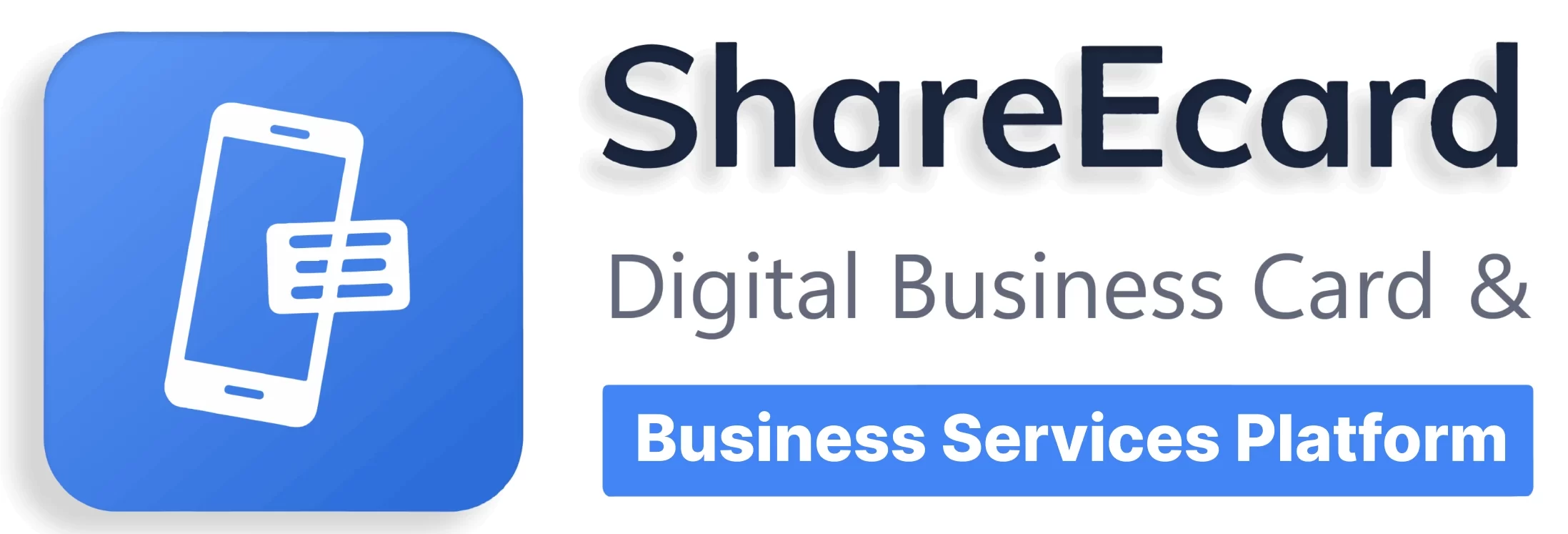Hey fitness enthusiasts! In a world buzzing with activity, where everyone’s chasing goals, fitness stands tall as a silent guide to well-being. But, hey, it’s not just about lifting weights or hitting the pavement; it’s about turning that passion for fitness into a kick-ass business. So, if you’ve ever dreamt of transforming your love for fitness into a thriving enterprise, you’re in for a ride. Let’s explore ten fantastic online fitness business ideas that not only celebrate the joy of movement but also offer entrepreneurs a shot at cultivating success.
10 Best Online Fitness Business Ideas You Should Know
1. Virtual Personal Training Sessions:
Imagine this: Personal training sessions without leaving your living room. Virtual personal training brings the expertise of personal trainers directly to fitness enthusiasts, making it convenient and accessible. For entrepreneurs, it’s not just about pumping iron; it’s about building a clientele and a brand that values health.
- Flexible Schedule: Conduct sessions at times that suit both you and your clients, opening doors to a global audience.
- Client-Centric Approach: Tailor workouts to individual needs, providing a personalized fitness journey.
- Cost-Efficient for Clients: Virtual sessions often come at a lower cost than in-person training, making it attractive to a wider audience.
How to implement:
- Online Presence: Build a robust online presence through social media and a dedicated website.
- Digital Tools: Invest in quality video conferencing tools and fitness apps to enhance the virtual training experience.
- Marketing: Leverage social media advertising and collaborations with fitness influencers to reach a broader audience.
- Client Engagement: Foster a sense of community through online forums and challenges to keep clients motivated.
Consider offering package deals or subscription models for consistent revenue.
2. Online Fitness Challenges and Programs:
Think of it as a fitness journey, but with a community cheering you on. Online fitness challenges and programs provide participants with structured workout plans, nutrition guidance, and a supportive community. For entrepreneurs, it’s not just about creating workouts; it’s about fostering a virtual fitness family.
- Community Building: Create a sense of belonging among participants, enhancing their commitment.
- Scalability: Reach a large audience with scalable programs that cater to different fitness levels.
- Brand Loyalty: Participants who achieve results become loyal followers, boosting your brand reputation.
How to implement:
- Program Structure: Design clear and achievable programs with progressive challenges.
- Online Platform: Choose a user-friendly platform for program sign-ups and progress tracking.
- Engagement Strategies: Host live Q&A sessions, virtual meet-ups, and encourage participants to share their progress on social media.
- Marketing: Use social media, fitness influencers, and testimonials to promote your challenges and programs.
Consider incorporating a variety of programs, from beginner-friendly to advanced, to cater to a diverse audience.
3. Virtual Wellness Workshops:
Dive into the world of knowledge-sharing and holistic well-being. Virtual wellness workshops offer a platform to educate participants on topics like nutrition, mindfulness, and mental health. For entrepreneurs, it’s about being more than just a fitness instructor; it’s about becoming a holistic wellness guide.
- Educational Impact: Empower participants with knowledge that goes beyond physical fitness.
- Diversified Revenue: Charge for workshops while expanding your reach beyond traditional fitness enthusiasts.
- Brand Authority: Position yourself as an expert in both physical and mental well-being.
How to implement:
- Content Creation: Develop engaging and informative workshop content.
- Collaborations: Partner with experts in nutrition, mental health, or mindfulness to bring diverse perspectives.
- Online Platforms: Utilize virtual meeting tools and create a dedicated space for workshop participants.
- Marketing: Highlight the benefits of a holistic approach to fitness and well-being in your marketing efforts.
Consider offering workshop bundles or subscriptions for ongoing wellness education.
4. Customized Online Meal Planning Services:
Fueling your fitness journey is just as important as the workouts. Customized online meal planning services provide personalized nutrition plans tailored to individual fitness goals. For entrepreneurs, it’s about nourishing bodies and building a business that understands the integral connection between diet and fitness.
- Personalization: Craft meal plans based on individual dietary preferences, restrictions, and fitness goals.
- Subscription Models: Offer ongoing meal planning services, creating a steady income stream.
- Client Accountability: Regular check-ins and adjustments keep clients engaged and committed.
How to implement:
- Nutritional Expertise: Acquire or partner with nutritionists to ensure accurate and effective meal plans.
- Online Platforms: Create an intuitive platform for clients to input information and receive their personalized plans.
- Communication Channels: Set up regular check-ins, webinars, or forums to foster client communication and support.
- Testimonials: Showcase success stories to build trust and attract new clients.
Consider bundling meal planning services with other fitness offerings for a comprehensive wellness package.
5. Virtual Fitness Retreats:
Escape to a fitness getaway without leaving home. Virtual fitness retreats combine elements of fitness, relaxation, and community, offering participants a rejuvenating experience. For entrepreneurs, it’s about creating an immersive fitness adventure that goes beyond the typical workout routine.
- Global Reach: Attract participants from different corners of the world for a diverse and inclusive community.
- Wellness Immersion: Blend fitness classes with mindfulness activities, creating a holistic retreat experience.
- Brand Differentiation: Stand out in the online fitness space by offering a unique and memorable retreat.
How to implement:
- Program Variety: Include a mix of fitness classes, meditation sessions, and wellness workshops.
- Virtual Platforms: Choose an interactive platform that allows real-time engagement and connection.
- Collaborations: Partner with fitness and wellness experts to enhance the retreat experience.
- Marketing: Emphasize the immersive and transformative nature of your virtual fitness retreats in your marketing efforts.
Consider offering exclusive perks or discounts for repeat virtual retreat participants.
6. Online Fitness Equipment Retailer:
Equip for Success. With the rise of home workouts, there’s a growing demand for quality fitness equipment. An online fitness equipment retailer offers a curated selection of workout gear, from dumbbells and resistance bands to high-tech exercise machines. For entrepreneurs, it’s about supplying the tools that empower fitness enthusiasts to reach their goals.
Benefits for Entrepreneurs:
- Scalable Inventory: Start with a select range of products and expand based on demand and trends.
- Profit Margins: Enjoy healthy profit margins by sourcing quality products directly from manufacturers or wholesalers.
- Brand Collaborations: Partner with fitness influencers or gyms to promote exclusive equipment lines.
How to implement:
- Supplier Partnerships: Establish relationships with reliable equipment manufacturers or wholesalers.
- E-commerce Platform: Set up a user-friendly online store with secure payment options and efficient shipping solutions.
- Marketing Strategies: Utilize social media marketing, influencer collaborations, and targeted advertising to reach potential customers.
- Customer Support: Offer responsive customer service to address inquiries, provide product recommendations, and ensure customer satisfaction.
Consider offering bundle deals or equipment packages tailored for different fitness levels or goals.
7. Online Fitness Certification Programs:
Empower the Future. As the fitness industry grows, there’s a need for qualified professionals. Online fitness certification programs provide aspiring trainers with the knowledge and credentials to kickstart their careers. For entrepreneurs, it’s about shaping the future of the fitness industry by educating and certifying passionate individuals.
Benefits for Entrepreneurs:
- Industry Leadership: Position your brand as a trusted authority in fitness education and certification.
- Recurring Revenue: Charge for certification courses, workshops, and ongoing professional development programs.
- Global Impact: Reach aspiring fitness professionals worldwide, fostering a global network of certified trainers.
How to implement:
- Curriculum Development: Design comprehensive and accredited certification courses covering essential fitness topics.
- Qualified Instructors: Recruit experienced fitness professionals and educators to facilitate the certification programs.
- Online Learning Platform: Create an interactive and accessible online platform for course delivery, assessments, and support.
- Accreditation: Ensure your certification programs meet industry standards and accreditation requirements.
Consider offering specialized certification tracks, such as sports nutrition, group fitness instruction, or corrective exercise training.
8. Virtual Fitness Consultations and Assessments:
Personalized Pathways. Virtual fitness consultations and assessments provide individuals with personalized fitness evaluations, goal-setting sessions, and tailored workout plans. For entrepreneurs, it’s about offering a bespoke fitness experience that addresses individual needs and aspirations.
Benefits for Entrepreneurs:
- Client Retention: Regular consultations and assessments foster long-term client relationships and commitment.
- Expert Positioning: Establish your brand as a go-to resource for personalized fitness solutions and guidance.
- Referral Opportunities: Satisfied clients are likely to refer friends and family, expanding your customer base.
How to implement:
- Assessment Tools: Implement digital tools and platforms for conducting virtual fitness assessments, such as body composition analysis or movement screenings.
- Client Onboarding: Develop a structured onboarding process that includes initial consultations, goal-setting sessions, and program customization.
- Communication Channels: Utilize video conferencing, messaging apps, and email to maintain regular communication and support.
- Feedback Mechanisms: Incorporate client feedback to refine and adjust fitness plans, ensuring continuous progress and satisfaction.
Consider offering bundled consultation packages or membership programs that include ongoing support and adjustments.
9. Online Fitness Apparel and Merchandise Store:
Dress the Part. Fitness enthusiasts love to wear their passion. An online fitness apparel and merchandise store offers a range of branded workout gear, apparel, accessories, and motivational merchandise. For entrepreneurs, it’s about creating a lifestyle brand that resonates with the fitness community.
Benefits for Entrepreneurs:
- Brand Visibility: Apparel and merchandise serve as walking advertisements, increasing brand awareness and recognition.
- Diverse Product Range: Expand your product offerings to include apparel, accessories, nutrition supplements, and branded merchandise.
- Collaborations and Partnerships: Collaborate with fitness influencers, gyms, or events for exclusive merchandise collections or limited-edition releases.
How to implement:
- Design and Sourcing: Develop unique and appealing designs for apparel and merchandise, considering trends and customer preferences.
- E-commerce Platform: Set up an online store with secure payment options, detailed product descriptions, and high-quality images.
- Marketing and Promotion: Utilize social media, influencer partnerships, and targeted advertising to promote your apparel and merchandise.
- Customer Engagement: Encourage customer reviews, showcase user-generated content, and create a sense of community around your brand.
Consider offering seasonal collections, limited-edition releases, or customization options for apparel and merchandise.
10. Fitness Mobile Applications Development:
Tap into Tech. In the digital age, mobile applications have become an integral part of our daily routines, including fitness. Developing a fitness mobile application offers users personalized workout plans, nutrition tracking, progress analytics, and community support. For entrepreneurs, it’s about merging technology with fitness to create a comprehensive and engaging user experience.
Benefits for Entrepreneurs:
- Scalable User Base: A well-designed and user-friendly app can attract a large and diverse user base, leading to increased revenue potential through in-app purchases, subscriptions, or advertisements.
- Continuous Engagement: Features like workout reminders, progress tracking, and community challenges keep users engaged and committed to their fitness journey.
- Data Analytics: Gain insights into user behavior, preferences, and trends through data analytics, allowing for continuous improvement and customization of the app’s offerings.
How to implement:
- Market Research: Conduct thorough market research to identify user needs, preferences, and existing gaps in the market.
- Development Team: Assemble a skilled team of developers, designers, and fitness experts to design, develop, and launch the app.
- Feature Planning: Outline the core features of the app, such as workout libraries, nutrition trackers, progress dashboards, social sharing capabilities, and more.
- Monetization Strategies: Explore various monetization strategies, such as freemium models, subscription plans, in-app purchases, or partnerships with fitness brands.
Consider collaborating with fitness influencers, trainers, or nutritionists to create exclusive content or features within the app, enhancing its value proposition and appeal to users.
Conclusion
So, there you have it! Those were some cool online fitness business ideas to get your wheels turning. From setting up virtual training sessions to creating user-friendly fitness apps, the world of online fitness is buzzing with opportunities.
The trick? Well, it’s not just about having a great idea. It’s about connecting with people, understanding what they need, and giving them something they can’t resist. As you dive into this world, keep things real. Listen to your audience, adapt when needed, and always bring your passion to the table.
Starting a business, especially in the fitness realm, is a journey. There will be ups, downs, and a lot of learning curves. But hey, isn’t that what makes it exciting? So, gear up, stay curious, and here’s to making waves in the online fitness scene! Cheers to your next big adventure!
We hope this guide sparks your imagination for starting your online fitness business. If you have other business ideas or if this guide has inspired you, share your thoughts in the comments below!
A digital business card will be really helpful for you to promote your online fitness business. Create a digital business card for free with ShareEcard.




